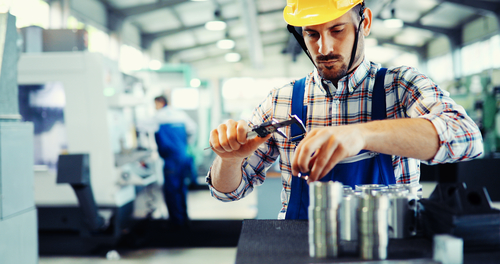Although most people do not quite understand the role of quality control specialists in manufacturing processes, the reality is that they play a vital role in ensuring that we are all safe. For example, a vehicle part that is not manufactured to the correct standards could have serious repercussions for the driver of the vehicle if that part ever ended up in a car. Luckily, quality control specialists are able to ensure that for the most part, manufacturing processes adhere to the correct standards. To do these quality control checks, quality control specialists rely on a variety of tools and machines to do their job. Read on to learn about the various tools that are vital to this role.
Hand-held Tools
There are a variety of hand-held tools that quality controllers use in their work. These range from gages, slide-calipers, micrometers, and indicators. If you visit a typical manufacturing plant, you might notice quality control specialists randomly checking parts off the assembly line using these tools. Handheld tools offer great flexibility to these specialists, allowing them to walk around the manufacturing line and testing parts at different points of the manufacturing process. Another great benefit of these handheld tools is that they are easy to use and people quickly learn how to use them without a lengthy training process.
Fixed Coordinate Measuring Machine (CMM)
Coordinate measuring machines or CMM are machines that give a very precise measurement of surfaces by running a probe over the surface of the part. These probes can either be mechanical, laser or optical depending on the degree of precision that is required. These CMM machines are fixed thus are likely to be used at one point. This means that products being analyzed are likely to be brought to the unit unlike the hand held devises that the quality control specialist can walk around with. Fixed CMMs are very precise and can also be linked to data processing machines allowing quality control specialist to analyze quality control data across different periods and different production lines.
Portable CMMs
These machines go a step further and give quality control specialists the ability to move around with the CMM while at the same time enjoying the precision that comes with CMM. Portable CMM tools are however sensitive to environments where there are strong vibrations (such as manufacturing plants that use big machines) and thus cannot be used in all manufacturing environments.
3-D Scanners
3-D scanners offer greater precision and flexibility without any of the limitations that come with portable CMM machines. For example, 3-D scanners are not affected by vibrations or temperature variations and thus are likely to work in a wider range of manufacturing environments. 3-D scanners are also suited for complex manufacturing processes.
Quality control specialists rely on some or all of these machines to ensure that the manufacturing process continuously produces products that meet very precise specifications.





